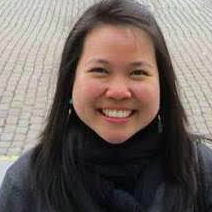

The current coronavirus pandemic has put a critical spotlight on how world leaders engaged with their people. Prime Ministers Lee Hsien Loong of Singapore and Jacinda Ardern of New Zealand have since earned international recognition for their effective communication, which serve as good references on “how to address” a nation. In contrast, Philippine President Rodrigo Duterte has constantly brought about frustration among Filipinos, which is a critical reminder on “how not to talk” during a crisis.
Lee is credited for communicating with transparency while acting rationally as he guides Singapore during the outbreak. He did not hesitate to break the bad news about the rising cases of infections in the country and admitted to the possibility that the situation might get worse, based on scientific information and fact-based recommendations. Yet he was able to persuade Singaporeans not to panic, reminding them that “fear can do more harm than the virus itself.” His message highlighted clear instructions on what the people should do, and specific actions on what his government is doing. Lee’s example of openness reveals that even authoritarian regimes like Singapore can be transparent and accountable when it mattered the most, unlike China’s autocratic rule and lack of transparency that resulted in global condemnation. This prompted collective compliance among Singaporeans based on their trust and confidence that their government under Lee’s leadership will take care of them.
Compared to Lee, Duterte communicated with uncertainty and acted hesitantly in managing the health crisis in the Philippines. In February, he initially discounted the severity of COVID-19, and delayed implementing protective measures. When more infections were reported in March, he swiftly declared a Luzon-wide “enhanced community quarantine,” a convoluted term that essentially meant a lockdown but with ambiguous explanations on what it exactly entails. The lack of clarity in Duterte’s speeches sowed more fear and confusion, making it more difficult for Filipinos to comply under ECQ as rules change, more are added, and some were unequally implemented. His recent decision to extend the ECQ left out specific actions on what the government will do during and after the lockdown, which cast more doubts on its capabilities to protect the nation in crisis. (READ: Duterte chaos leaves barangay officials 'helpless' amid lockdown)
Meanwhile, Ardern is commended for communicating with empathy while acting decisively as she leads New Zealand in the fight against the coronavirus. She employed a “four-level COVID-19 alert system” patterned after the country’s fire risk system already in place. Each level equates to a degree of risk, which sets clear guidelines on how the government will respond and what it requires of its citizens. The rising infections prompted Ardern to declare an alert level 4 announcing a nationwide lockdown. After which, she regularly gives updates on what the government is doing to fight the virus and how it assist people during the lockdown. She does this with empathy and encouragement – acknowledging the big disruptions in people’s daily lives yet inspiring them to make sacrifices for the health and safety of the nation. She even delivered a Facebook Live message from her home wearing a sweatshirt, putting herself in the shoes of fellow New Zealanders on lockdown. Consequently, Ardern has effectively persuaded the nation to comply by attaching meaning to the people’s sacrifices with compassion, generosity, and the collective good.
In contrast, Duterte communicated with intimidation and ordered punitive measures against people defying ECQ rules. He emphasized law enforcement and its strict compliance, seemingly expecting the Filipinos’ tendency for disobedience and insubordination. Instead of invoking our positive values and shared norms (Filipino solidarity, resilience, and bayanihan spirit), Duterte anticipated the worst among us that is evident in his speeches, focusing more on declaring threats rather than offering hope and assurances to the nation. This fear of government punishment further aggravates our looming fears of the virus, especially among the poor who suffer more living in quarantine.
During, much leeway is afforded to state leaders who are susceptible to commit mistakes in communicating to their people. Yet reflecting on Lee and Ardern’s communication styles proves that conscientious efforts on how their messages are delivered matters, especially in these trying times. Unfortunately, Duterte falls behind in effective communication (his inconsiderate late-night monologues are obvious giveaways), which should prompt consistent calls for improvements in his speeches for the well-being (and sanity) of the nation. Despite the Filipinos’ hopeless tolerance of Duterte’s crude manners, it is unfair for us to merely accept that his amateurish language, past mistakes, and wasted opportunities during the crisis are all we can expect from him. – Rappler.com
Andrea Chloe Wong has a PhD in Political Science from the University of Canterbury, New Zealand.